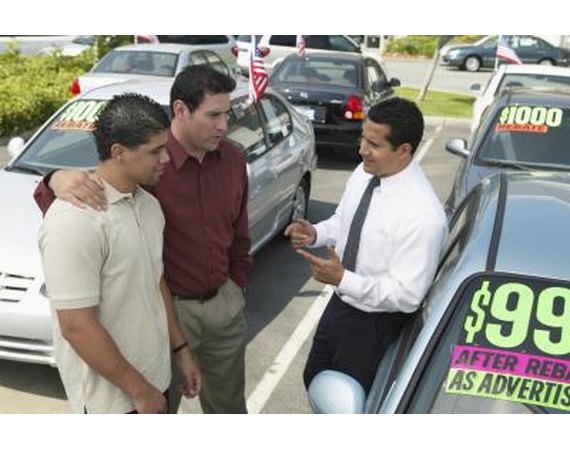
Any account delinquencies can have a negative effect on your credit report. However, auto loan delinquency can be particularly problematic, because its a secured debt. Unsecured debt, such as credit cards, doesnt have a piece of property to back it up if you default on your payments. Secured debt, such as home and auto loans, has your home and auto to back it up -- a fact your bank knows well.
Definition
When an account is charged off, whether its a delinquent auto loan or otherwise, it doesnt mean that you no longer owe any money. Instead, it means the bank servicing the auto loan has written the loan off as a bad debt because youve been so delinquent in paying it. Its no longer part of its accounts, and the bank is free to send either an in-house collection agency or a third-party collection agency after you to recover its money.
Timing
Creditors have different amounts of time after which they charge off your account. Consult with your bank to learn its specific policies or consult your copy of the papers you signed when you took out the auto loan. The time may range from 90 to 180 days. Another important time frame to keep in mind is how long a charge-off of any kind can stay on your credit report legally. According to the federal Fair Credit Reporting Act, a charge-off can stay on your credit report for up to seven years after the date of last activity.
Effects
Having charge-offs on your credit report can make it difficult to obtain additional credit, especially if you havent made any effort to pay them off. Since the item in question is an auto loan, you also run the risk of having your auto repossessed if the loan gets charged off. The bank technically owns your auto and is holding the title in trust for you until you pay the loan off. If you renege on your agreement to pay the loan, your bank is under no obligation to honor its part of the agreement, either.
Considerations
Each state has its own rules about the statute of limitations allowed for collection of funds on charged-off accounts. These rules may vary for secured loans -- such as your auto loan -- and unsecured loans such as credit cards. Check with your state government to find out the most current laws regarding financial statutes of limitations. Also, the date of last activity means just that. If you enter into a payment agreement with a collection agency to bring your account current, each new payment is considered the last activity. In general, its advisable to pay your auto loan as consistently as possible so you can eventually own the vehicle. However, financial expert Suze Orman advises that if a charged-off debt is close to reaching the statue of limitations, you may be better off financially by lying low and letting it slide unpaid. If youre uncomfortable with this idea, she advises you to consult a lawyer to see about reaching a settlement with the creditor in question to pay all or part of what you owe on terms that are favorable to your current financial situation.





















